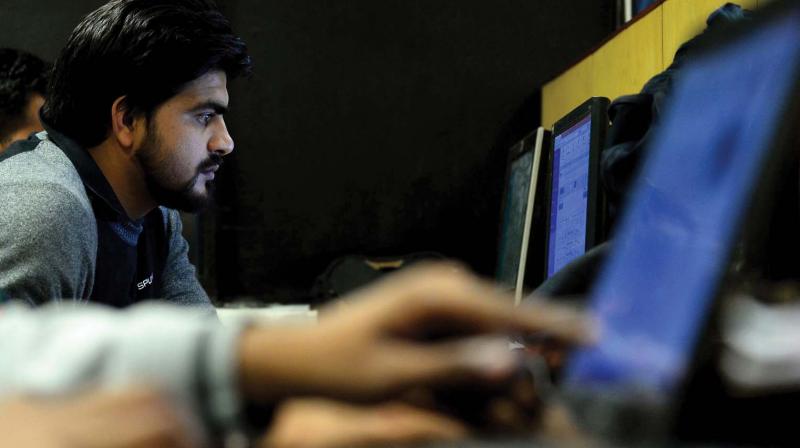Reality strikes hard for Self-financing engineering colleges

Thiruvananthapuram: The self-financing engineering colleges with low reputation may find the going tough in the new academic year with the global employment scene looking bleak. Even last year, over 20,000 seats had remained vacant in engineering colleges in the state after the counselling process was completed. The situation is bound to worsen with students looking for better options as the US and Kuwait have tightened the employment rules for overseas engineering and IT candidates. It was in the context of the high number of seats remaining vacant that the All-India Council for Technical Education (AICTE) had suggested the shutdown of 800 colleges which did not have a minimum of 30 percent admissions for five consecutive years and lacked proper infrastructure by 2018. If this is implemented, around 36 colleges in Kerala would have to be closed down.
After the third and the last round of allotments to private self-financing colleges in the state, only 32 had more than 40 percent admissions in government quota. Most of them had been showing less than 30 percent admissions for the past five years. There were 61 branches having not even a single applicant and 66 having only one. In 23 branches, the total number of students admitted was less than 10. At least 13 private engineering colleges in the state had less than five percent admissions after the last round of counselling last year. The Trump administration in the US has moved to bar entry-level candidates from the H-1B visa programme. The Public Authority for Manpower in Kuwait has said that work permit will not be issued to engineering candidates unless they provide a 'to-whom-it may-concern' letter issued by the Kuwait Engineers Society (KES).
Those who studied in colleges with accreditation from the National Board of Accreditation (NBA) can get the letter from KES, as per the norms. Pro Vice-Chancellor M. Abdul Rahman of APJ Abdul Kalam Technological University told Deccan Chronicle that the new employment scenario around the globe would have its impact on colleges that do not satisfy certain quality parameters. The students from such colleges would be left out of the employment market. Unlike in the past, companies were not recruiting graduates and then give them training. Instead, they wanted only graduates with a certain level of skills, said Mr Rahman. Mr Sunil Thomas Thonikuzhiyil, principal of the College of Engineering, Attingal, said that only companies which did outsourcing business made mass recruitments. They are the worst hit by the H-1B visa restrictions.
Core engineering companies still make recruitments. However, they only recruit students from reputed colleges. Smaller companies may look for all-rounders and recruit only those who have multiple skills like marketing, work skill and knowledge of the subject. They also do not recruit from colleges with low pass percentage. Hence, the situation does not augur well for colleges with lower academic quality, said Mr Thonikuzhiyil. "I feel some vested interests are behind the propaganda about Kuwait. If NBA accreditation is made the criterion, it is not a right decision. The NBA accreditation is more of a book-keeping exercise than a quality assessment. Colleges which keep records better get NBA accreditation. This is why some colleges which have the best academic records do not figure in the accreditation even while some colleges that have low academic quality get accreditation," said Mr Thonikuzhiyil.
Mr Vinu Thomas Nanthikattu, professor at Government Model Engineering College, Thrikkakara, said that Kuwait's move may be part of its localization process. As per the Washington accord, in which both India and Kuwait are signatories, NBA is the set parameter for employment. “This means that those who are employed in Kuwait now would also lose their jobs,” said Mr Nanthikattu.
NBA accreditation is of two tiers. The criteria for the same are academic, financial and administrative autonomy, powers for fixing their own curriculum and so on. This is why CUSAT is in the tier one of the NBA accreditation and College of Engineering, Trivandrum (CET) is in tier two. “But CET is considered the best engineering college in the state and rated even higher than CUSAT,” said Mr Nanthikattu. “If Kuwait insisted on the norms, those who are employed there after completion of BTech from colleges without NBA accreditation may also lose their jobs. It would have to introduce a retrospective clause with a cut-off date. Most probably, those employed before 2014 would get an exemption because India signed the Washington accord that year,” said Mr Nanthikatu.

